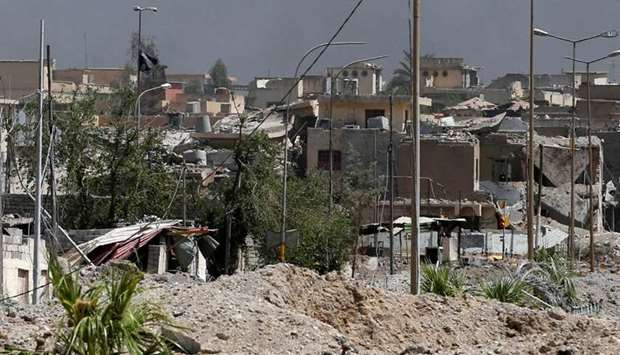"These civilians are basically held as human shields in the Old City," said the presiding UNHCR representative in Iraq, Bruno Geddo, referring to Mosul's historic district where the militants are besieged by Iraqi government forces.
"There is hardly any food, water, electricity, fuel. These civilians are living in increasingly worsening situation of penury and panic because they are surrounded by fighting."
The offensive to retake Mosul, Islamic State's de facto capital in Iraq, started on Oct. 17 with key air and ground support from a US-led international coalition.
Iraqi government forces regained eastern Mosul in January, then a month later began the offensive on the western side that takes in the Old City.
The Old City "is a very dense labyrinth, a maze of alleyways where fighting will have to be done on foot, house by house," said Geddo. Some 200,000 people were estimated to be trapped behind IS lines in May, but the number has since declined as government forces have thrust further into the inner city.
The fall of Mosul would, in effect, mark the end of the Iraqi half of the "caliphate" that Islamic State leader Abu Bakr al-Baghdadi declared in a speech from a historic mosque in the Old City three years ago, covering parts of Iraq and Syria.
About 800,000 people, more than a third of the pre-war population of the northern Iraqi city, have already fled, seeking refuge with friends and relatives or in camps.
Kurdish forces backed by US-air strikes are also besieging Islamic State forces in the city of Raqqa, the militants' de facto capital in neighbouring Syria.

An Islamic State militant flag is seen in front of houses in the Shifa neighbourhood in western Mosul, Iraq.
Over 100,000 civilians remain trapped behind Islamic State lines in Mosul with a US-backed government offensive to recapture the Iraqi city entering its ninth month, the United Nations refugee agency UNHCR said on Friday.
